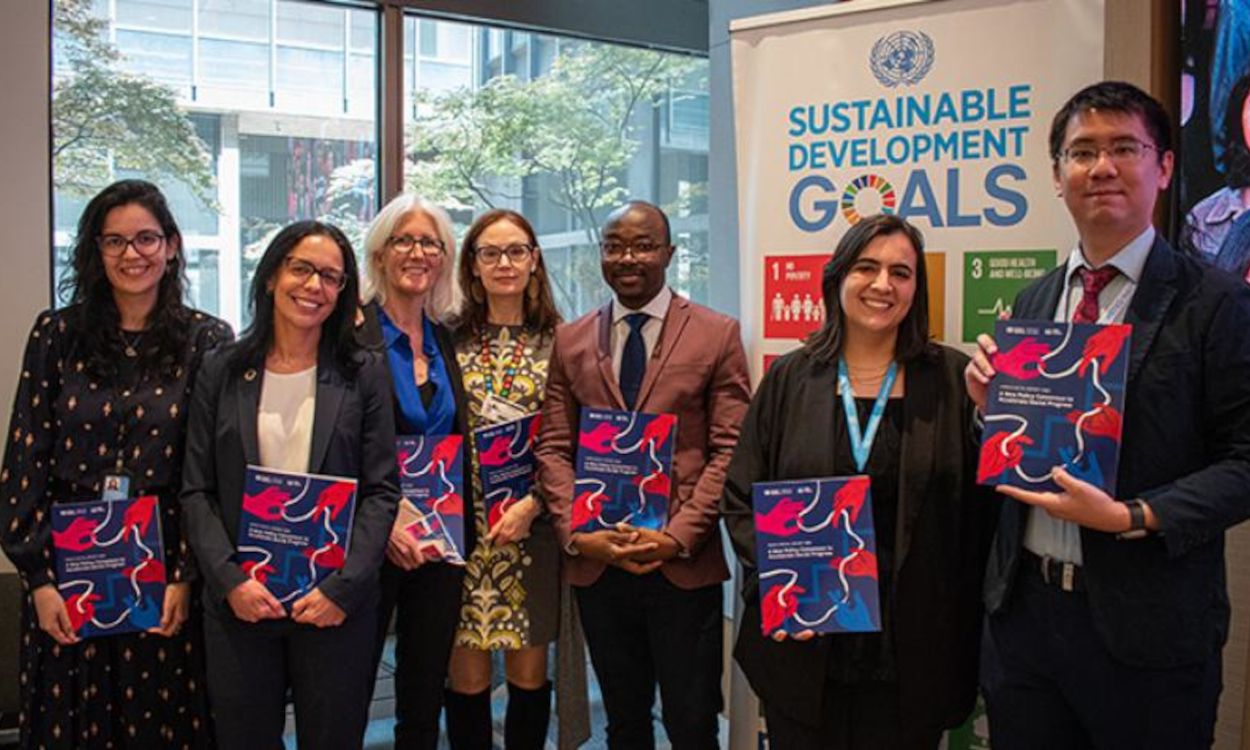COVID-19 Situation and Response in the Republic of Korea

Coronavirus started from Wuhan, China, has turned the world into a confusion. As of August 10th, confirmed COVID-19 cases around the world have surpassed 20 million and deaths amounted to 735,000 people. The United States is the most serious with 5 million confirmed cases and 163,000 deaths. On the other hand, South Korea has relatively small number of confirmed cases of 14,600 and 300 deaths. However, we must remain vigilant as the number of confirmed cases is increasing recently.
The fact that the virus did not spread much in South Korea was possible due to the government’s preemptive response and the voluntary participation of the private sector. The government, equipped with the current medical system through swine flu and MERS, has succeeded in suppressing the situation in the early stages by taking preemptive action of operating the medical system at the same time as the outbreak. In particular, the government has established a mass production system for COVID-19 inspection kits before the spread of virus, immediately blocked the place of occurrence in the case of a confirmed patient and identified the visited location and route of the confirmed patients and shared it to the entire nation which helped the government to win public trust with its transparent disinfection policy.
However, the impact of COVID-19 on the low-income underprivileged was not easily gone. Jobs for those who lived from day to day have disappeared, and a series of social service agencies such as welfare centers have closed down, leading to people worrying about meals due to the discontinue of lunch box and free meal services, and others complaining of agony due to the facility’s cohort isolation. And they were the ones who needed active support as they were more vulnerable to coronavirus infection than anyone else.
Accordingly, Korean National Council on Social Welfare has actively sought to support the underprivileged who are suffering from COVID-19. Centering around Korean National Council on Social Welfare, 17 city and provincial councils on social welfare and 160 municipal, county and district councils establish social welfare delivery systems through organic connection and cooperation with welfare organizations in community.
Particularly, Korean National Council on Social Welfare formed the “COVID-19 Countermeasures TF” on March 3rd, and is discussing measures on infection prevention and preventive measures of Coronavirus with social welfare organizations in different fields. As a result of collecting opinions from the field through the TF team, the prevailing opinion was that “specific guidelines such as financial and manpower support are needed for social welfare living facilities with a high risk of mass infection.” In addition, there have been sporadic outbreaks of mass infections in living facilities such as nursing homes and welfare facilities for the severely disabled, raising concerns over the prevention and response of infectious diseases at social welfare fields.
Accordingly, KNCSW allocated 6,000 confiscated facial masks from the Korea Customs Service to cohort facilities in Daegu and North Gyeongsang Province, which were declared disaster areas, and delivered 2,000 Immergency Food Packs. KNCSW also launched a 330 million won project to support the underprivileged together with 11 cities and counties in Daegu and North Gyeongsang Province. In conjunction with Audi Volkswagen Korea, 6,300 plants and 14,000 tissue-type hand sanitizers were provided for children, teenagers and workers. KNCSW also provided food worth about 100 million won to 410 children and youth group home facilities nationwide, and has been responsible for delivering right goods in the right place by connecting corporate and institutions, such as distributing 15 million won worth “red ginseng” to social welfare facilities. Affiliated with Korea Disaster Relief Association, total of 657,120 hand sanitizers were provided to 16,316 facilities including Korea Association of Social Welfare Centers, Korea National Association of Child Welfare and Korea Food for the Hungry International.
KNCSW also did not miss out on support for volunteers. We temporarily expanded the recognition scope of non-face-to-face and online volunteer activities for social welfare facilities and home care services until June which includes mask production, cooked lunch box delivery, greeting calls and etc. In addition, KNCSW submitted a proposal of respond to COVID-19 to the government, including the prime minister, deputy prime minister for economic affairs and health and welfare minister. The proposal, which collected opinions from each social welfare facility, includes administrative and financial priority support for cohort isolation facilities, priority distribution of preventive goods such as masks to social welfare sites through procurement of public systems, and payment of ‘Korean-model disaster allowances’ for low-income families at the central government level.
Korean National Council on Social Welfare plans to continue providing various support, including projects with companies and corporate under COVID-19 circumstances, such as ‘Uncontact Corporate Social Responsibility Idea Contest’ to solve social problems as the corporate social responsibility environment changes with the outbreak of COVID-19.





